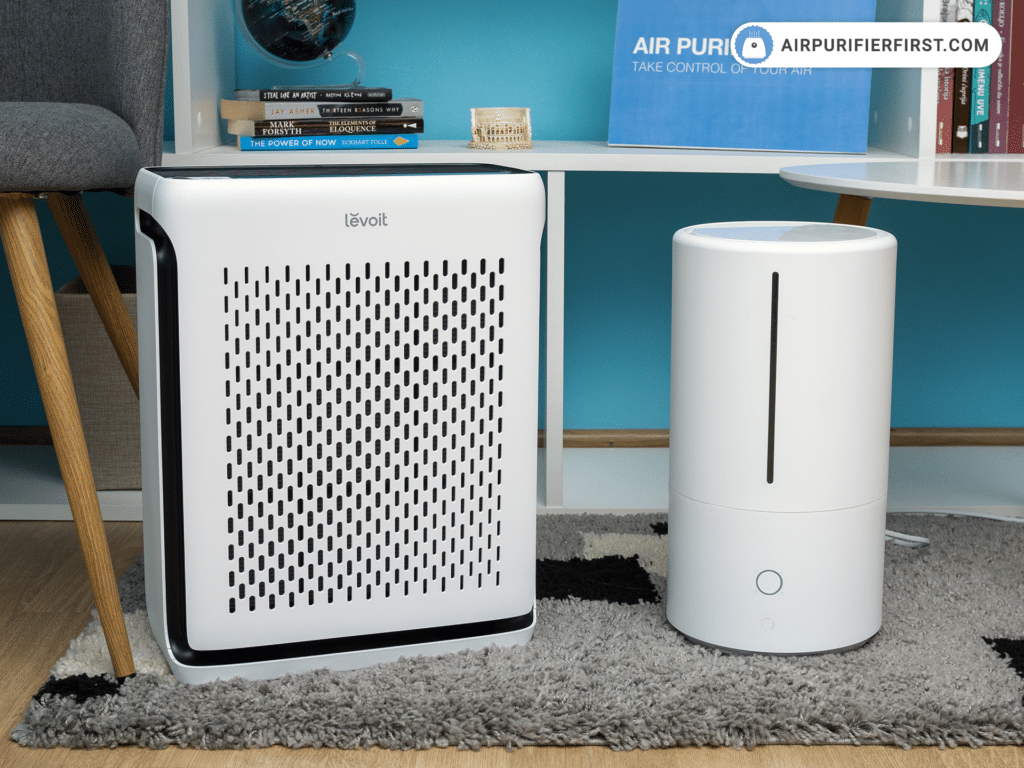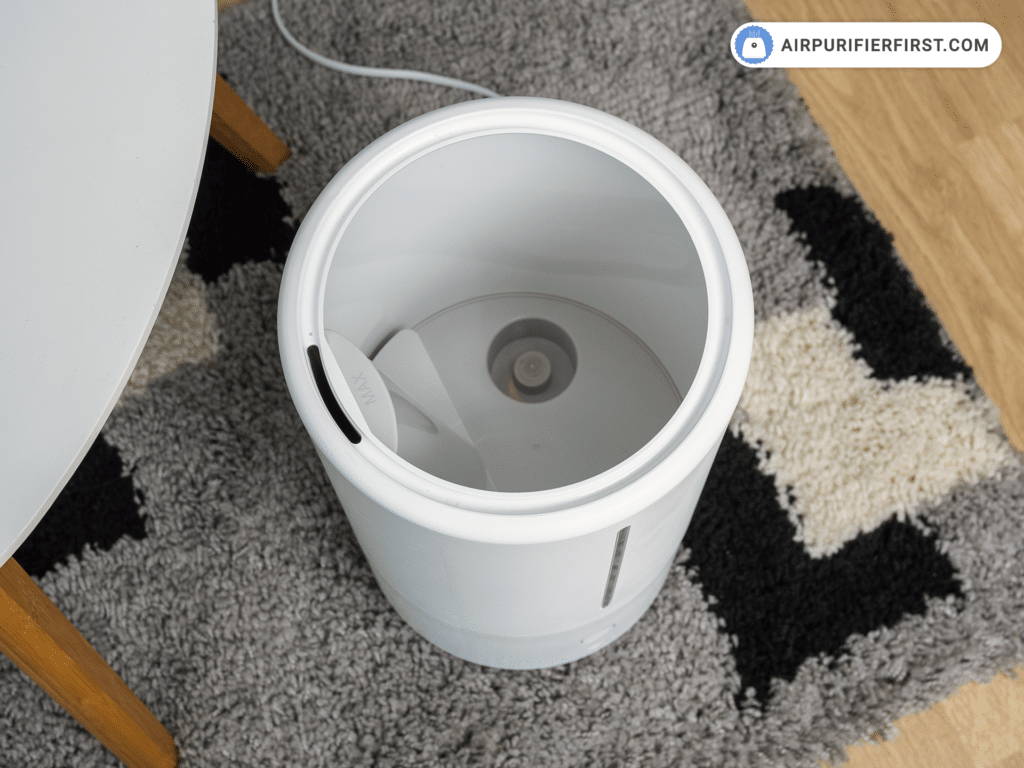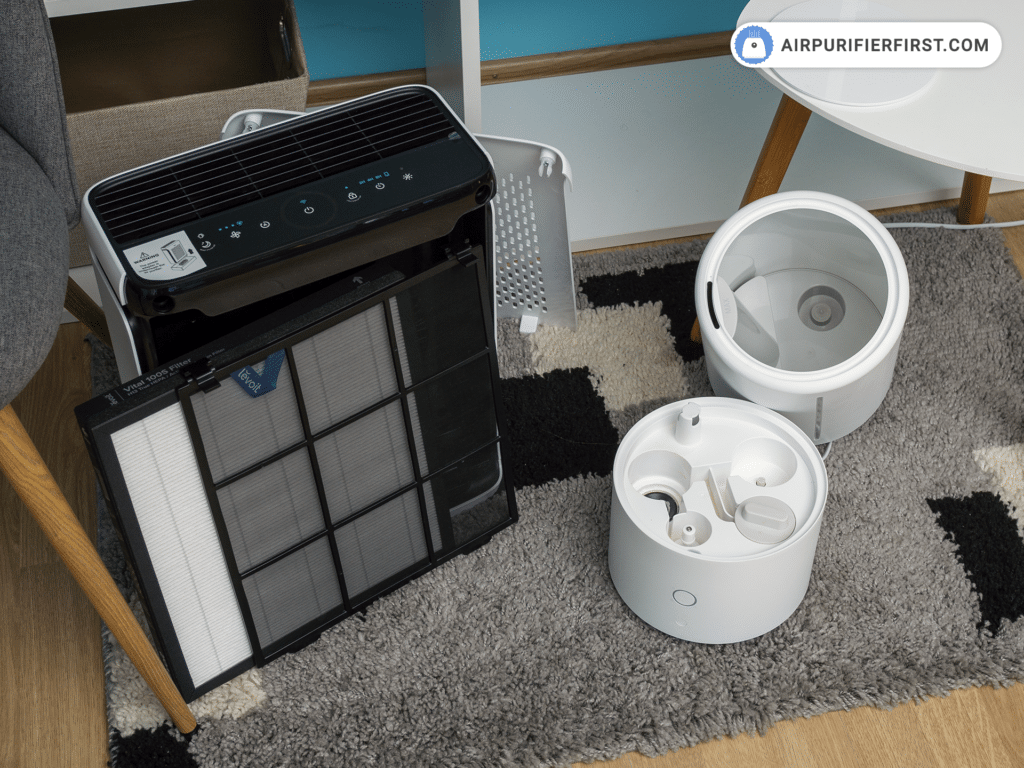Both air purifiers and humidifiers can significantly impact the air quality in your home, though their functions are distinctly different. Air purifiers cleanse the air of harmful pollutants, while humidifiers increase moisture levels.

Table of Contents
There is often confusion regarding the purpose of these two device types. In this article, I aim to thoroughly explain air purifiers and humidifiers functions, capabilities, and differences.
The choice isn’t about whether one is better; it’s about understanding how to use each type of device effectively. A crucial question to consider is whether your primary need is to purify the air or to increase the humidity levels.
Keep reading to find out all the unanswered questions about the differences between air purifiers and humidifiers.
Air Purifiers and Humidifiers Difference: Which One Do You Need?
Simply put, an air purifier is designed to purify the air, while a humidifier increases the air’s humidity levels.
An air purifier removes contaminants from the air to improve indoor air quality. These devices usually feature multiple layers of filtration, almost always including HEPA and activated carbon filters. They capture small particles like dust, pollen, allergens, and other airborne particles, as well as neutralize volatile organic compounds (VOCs), thus improving the overall air quality in your space.

Conversely, a humidifier is designed to increase air moisture levels rather than clean it. It emits water droplets or steam to raise humidity levels. There are a few different types of humidifiers, but I won’t describe them in this article as the only thing I want to focus on here is the difference between air purifiers and humidifiers.
Therefore, deciding which device to choose depends on whether your goal is to clean the air or increase its humidity level. If the air quality is your primary concern, then get an air purifier; otherwise, get a humidifier.
You might even consider both if your situation requires it.
Air Purifier Vs Humidifier for Different Conditions:
Personally, I use a humidifier during winter when home humidity drops due to intense heating, and I use air purifiers daily. Based on my experience, both types of devices effectively fulfill their advertised functions.
However, I would like to dive into the recommendations and best practices for using air purifiers and humidifiers.
So, I would use an air purifier to:
- Reduce the amount of floating dust in your home.
- Capture pet dander, airborne allergens, and other particles.
- Neutralize unpleasant odors from cooking or cigarette smoke.
- Improve the overall air quality in your home.
- Reduce symptoms of respiratory conditions like asthma.
I would use a humidifier to:
- Address low humidity levels in arid, dry environments.
- Increase your home’s moisture levels.
- Prevent respiratory issues caused by dry air, such as nosebleeds and sinus pressure.
- Improve air humidity during cold, dry winter days.
Do 2-in-1 Air Purifiers and Humidifiers Work?
People often seek multifunctional devices for space-saving and simplified control. Therefore, some brands have created 2-in-1 air purifier and humidifier combo devices.

I have tested a few of these devices and concluded that they can’t match the performance of standalone air purifiers or humidifiers. These 2-in-1 devices often have smaller water tanks and lower-quality filters, usually leading to low performance.
From my experience, standalone air purifiers and humidifiers have shown superior performance compared to 2-in-1 combo products, but of the same power, of course. For a more detailed analysis, I recommend you read my in-depth reviews of devices like the TCL breeva A2 or Afloia Q10.
My conclusion is that it’s a few times better to get a standalone device than a 2-in-1 combination, at least when speaking of air purifiers and humidifiers.
FAQ on Air Purifiers Vs Humidifiers
How do I maintain an air purifier and humidifier?
Both require regular maintenance for optimal efficiency. Air purifiers need regular filter replacement and proper cleaning, depending on the filter type. Humidifiers require regular water tank refilling and may need a water treatment solution to prevent bacteria and mold growth.
Do humidifiers clean the air?
No, they don’t. Humidifiers increase the moisture levels in the air.
Can I use an Air Purifier and Humidifier Together?
Absolutely. However, avoid placing them too close to each other as humidifiers can cause HEPA filters in air purifiers to become moldy due to high humidity. Despite this, they can operate simultaneously without issues. I use both in my living room during the dry winter months.
Final Thoughts
In conclusion, air purifiers and humidifiers serve different purposes. Deciding which to purchase depends on whether you need to clean the air or increase humidity levels in your home.
An air purifier is a device that will clean the air in your place, while a humidifier is a device that will increase humidity levels in your home. This is everything you need to know about these two device differences.
As I haven’t gone into the details of how these two device types work, I suggest reading my other articles, such as the one where I explained how does an air purifier work.
If you have questions about the topic, please feel free to comment below the article; you can also write to me directly through the contact form on the website.
Leave a Reply